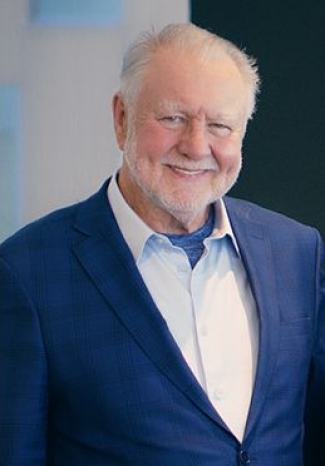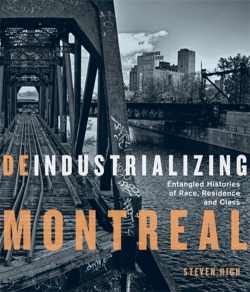Harold Simpkins, BA 67, MBA 78, has fond memories of childhood friendships and playing road hockey on the gritty streets of Pointe-Saint-Charles, a working-class neighbourhood of Montreal.
Yet life was tough in the Point in those early postwar years. His grade school friend Stanley, Simpkins recalls, lived with his parents and 10 brothers and sisters in an overcrowded house with dirt floors.
“I’ll never forget when Stanley came to our place for dinner. My mother put the plate down in front of him, and he was so hungry, he finished it in 45 seconds. Then he had another five or six helpings, which was a great compliment to my mother,” says Simpkins, who is now a senior lecturer of marketing and academic director of the Marketing Co-op program at Concordia’s John Molson School of Business.
His father — who had left school at age eight upon the accidental death of his own father — worked his way up from the factory floor to management. Simpkins was the first in the family to go to university.
“I saw university as a path to getting out of that environment,” says Simpkins. He enrolled at Sir George Williams University, one of Concordia’s founding institutions, where he could study while working part-time.
“All of a sudden, at 16, I went from high school in Verdun to university downtown. I encountered all kinds of people from backgrounds other than mine,” he says. “It was exciting but also intimidating, and I felt really alone.”
Simpkins persevered. One of five children, he often studied in his parents’ bedroom while they slept, since their two-bedroom flat on Grand Trunk Street was crowded and noisy, with the television always on in the living room.
“I studied psychology and focused on industrial relations because that’s where my father’s work had evolved,” says Simpkins. After graduating in 1967, he briefly worked in that field, then switched to marketing.
A need for formal business education
At one of his first jobs, then-25-year-old Simpkins was sent to New York City to present to a room full of senior executives of a major multinational company. He didn’t understand any of the content — a financial case for a new product — so he memorized every word, desperately hoping there would be no questions after the presentation. (There weren’t.) That’s when he realized he needed a formal business education to get ahead.
He returned to Concordia and earned his MBA over six and a half years, while working full-time in advertising.
A few years later, one of his MBA professors approached him after another lecturer cancelled at the last minute. He convinced Simpkins to teach an advertising course at Concordia — which he did over his lunch hour, further extending his 60-hour work weeks.
When his position as vice-president at Canada’s largest ad agency ended, he took on a nine-month teaching contract at the John Molson School to pay the bills — and never left. After renewing his contract annually until 1995, he secured a full-time, permanent position as senior lecturer of marketing. He has taught courses in advertising, marketing research, business communication and international business.
Looking back
In his 40-plus years at Concordia, Simpkins singles out a few accomplishments in which he takes great pride. He helped launch the Marketing Co-op program, part of Concordia’s Institute for Cooperative Education. Under his leadership as academic director, the program flourished from six students in 1995 to 150 today. Giving students hands-on, paid work experience before graduation, the Marketing Co-op program helps set the John Molson School apart from the competition.
“So many former Co-op students hire Co-op students. It’s really gratifying to see our students go out there in the world, start successful careers and come back to hire our students.”
For more than three decades, Simpkins has been heavily involved in coaching John Molson students for inter-university case competitions at home and abroad. These competitions bring students together to solve real-life challenges brought forward by actual businesses, including Desjardins, Home Depot, L’Oréal, Metro and Bombardier. One of his courses is entirely focused on preparing students to compete in Quebec’s Relève Marketing and Relève Communications.
“At the end of the course, students typically present their solutions to the client in their advertising agency’s pitch room. You can’t beat that for experiential learning,” says Simpkins.
“Because of Co-op and coaching, I get to know students quite well and maintain long-term contact with many of them,” he says. “Former students call me up to bounce ideas or get business and career advice — even to offer to come back as guest speakers. It’s especially rewarding when a former student tells me their son or daughter is applying to the program.”

 A few of Harold Simpkins’s stories of growing up in the Point are included in Deindustrializing Montreal, written by Concordia professor of history Steven High.
A few of Harold Simpkins’s stories of growing up in the Point are included in Deindustrializing Montreal, written by Concordia professor of history Steven High.